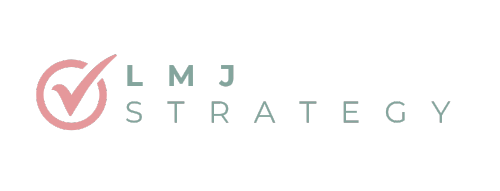As the year winds down, it’s a natural time to pause and reflect on what’s happened in your business over the past 12 months. For small business owners, asking key business reflection questions can reveal what’s working, what needs adjusting, and what truly matters most. Reflection can be a powerful tool for growth, offering insight into the wins, challenges, and milestones that shaped your journey.
To help guide this process, I’ve put together ten questions that’ll help you look back on the past year with intention. These aren’t just about numbers or milestones; they’re about finding meaning in your work, learning from every experience, and setting the stage for a focused, fulfilling new year.
10 Essential Business Reflection Questions to Close Out the Year
1. What moments brought me joy in my business this year?
Start by reflecting on the moments that truly made you happy—times when you felt fulfilled, engaged, or deeply connected to your work. This is an opportunity to focus on what makes your business enjoyable, whether it’s a specific client, a successful project, or an unexpected achievement. If you can’t look back and find a moment of joy, that’s a valuable insight too. It might be time to ask: Is this work truly worth it?
Tip: Let this question set a positive, gratitude-focused tone for the rest of your reflection.
2. What were my top three accomplishments this year?
Acknowledge the big wins! Think about three key accomplishments that moved your business forward. Celebrating these achievements builds confidence and shows you which efforts are worth repeating next year.
Follow-Up: Consider how these accomplishments align with your long-term goals. Do they reflect the direction you want your business to keep moving in?
3. What were my biggest challenges, and what did I learn from them?
Challenges are part of every business journey. Rather than revisiting every setback, focus on the significant or recurring issues. Reflect on these challenges and, more importantly, what you learned from them. Often, challenges point out areas where changes in strategy, clearer processes, or additional support could make a difference.
Follow-Up: Use this as a turning point. Ask yourself: What strategic changes can I make to prevent these issues from recurring? Try starting with our Kickstarting Productivity Guide!
4. How did my financials measure up to my goals?
Even if financial analysis isn’t your expertise, it’s essential to look at the big picture. Review your key performance indicators (KPIs) and objectives (OKRs) to see how your revenue, expenses, and profitability compared to what you planned. Reflect on whether you met your financial goals, and if not, explore why that may have happened.
Tip: Look at your progress toward any financial goals you set at the start of the year. Are there areas to improve in tracking or budgeting for next year?
5. Which tasks or processes drained my time the most, and which saved me time?
Time is one of your most precious resources. Reflect on tasks that felt like time-drains—those that took up too much of your focus without offering much return. On the other hand, celebrate the systems or processes you put in place that saved time and made work easier.
Follow-Up: Where possible, apply what saved time this year to other areas of your business. For tasks that drained your energy, think about how you can automate, streamline, or delegate them going forward.
6. What tasks or areas do I wish I’d delegated or outsourced?
Take a moment to think about where support could have helped reduce your workload or improve outcomes. This could mean entire business areas, like bookkeeping, or specific tasks within a function, like administrative tasks within operations. Identifying these areas helps you see where delegating next year could free you up for higher-value work.
Pro Tip: Next year, create a plan to delegate more intentionally. Whether it’s hiring a part-time assistant or contracting out a specific project, intentional delegation can be a powerful tool.
7. Which clients or projects were most rewarding, and which weren’t a great fit?
Reflecting on the clients or projects that brought you the most satisfaction and growth is crucial for refining your client base. Consider what made these clients or projects rewarding—whether it was shared values, smooth collaboration, or simply a good fit for your expertise. It’s equally valuable to think about any client types or projects that didn’t align well with your business and why.
Follow-Up: Use this insight to shape your marketing, onboarding, or client qualification processes next year to attract more of your ideal clients.
8. What feedback did I receive, and what can I learn from it?
Constructive feedback, whether positive or negative, provides a direct window into how clients or partners perceive your work. Reflect on any recurring themes, as they may indicate areas for growth or refinement. Just as importantly, note positive feedback that reinforces what you’re doing well—this helps you see what’s resonating and should continue.
Follow-Up: If any feedback points to areas for improvement, create an action plan to address them. On the flip side, capitalize on your strengths by highlighting them in your marketing or client interactions.
9. How did I manage my work-life balance this year, and what made it challenging?
Work-life balance is crucial for long-term sustainability. Reflect on any periods when balance felt especially challenging, and dig into why that was. Were you overwhelmed by tasks, dealing with a big project launch, or simply overcommitted? Understanding what caused these imbalances helps you plan better boundaries or support next year.
Follow-Up: Identify any specific steps you could take next year, such as delegating tasks, setting firmer boundaries, or planning further in advance.
10. What skills or knowledge did I gain, and what do I want to learn next year?
Celebrate any new skills you acquired this year, whether technical, interpersonal, or strategic. Take a few minutes to update LinkedIn, your website, or other platforms to reflect these accomplishments. Also, consider any skills or areas you intended to learn but didn’t—explore why they didn’t happen and whether they’re still a priority for next year.
Follow-Up: For skills you didn’t pursue, ask whether it was a matter of time or interest. If it’s a priority, consider delegating other work to make room for skill-building next year.
Bonus: Set a Word of the Year
Choosing a word of the year is a simple but powerful way to set your focus. Think about a word that aligns with your goals or intentions for next year—something that will stick with you and guide your decision-making throughout the year. This “theme” can be a helpful reminder to stay aligned with your priorities, especially during busy times.
Your Next Step to Building a Productive, Balanced Workday
Reflections aren’t always easy. It’s normal for this process to bring up uncomfortable truths, frustrations, and areas that need growth. But don’t let the challenges discourage you. These insights are valuable tools for building a stronger, more focused business. If you’re struggling with your reflection, remember there’s only room to grow from here—and you’re not alone. Feel free to reach out to a trusted friend, colleague, or a coach like myself for support.
If you’d like a personalized approach to making next year your best yet, let’s talk! Book a free consultation to explore how to streamline your goals, create an actionable plan, and start the year off strong.

